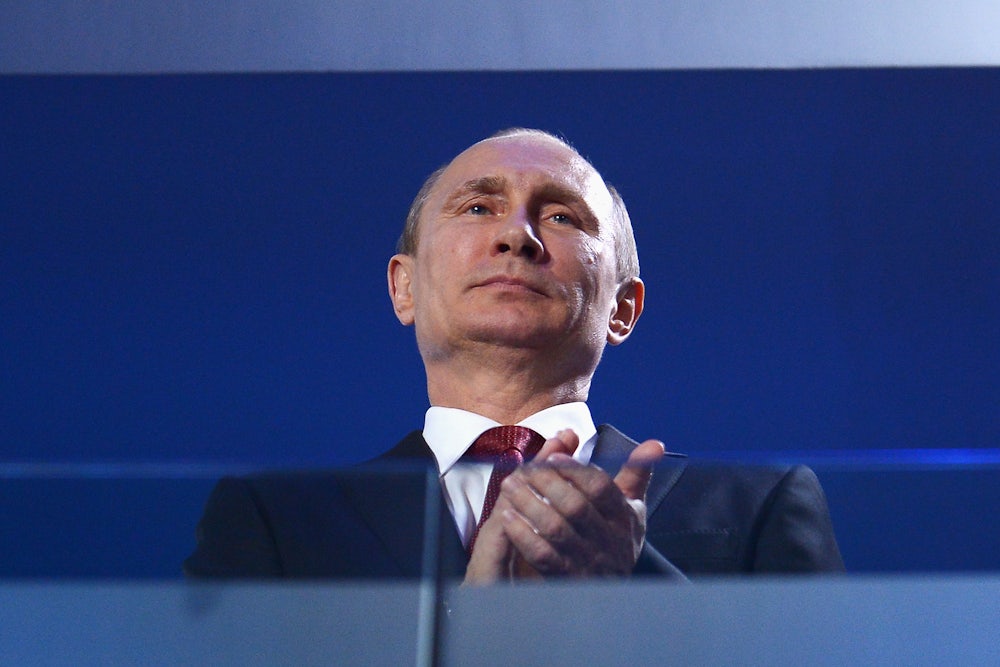Trump’s affection for Putin, as well as his friendly disposition toward Russia in general, are undeniable. There is little doubt that Trump, who told The New York Times last week that he would not necessarily respond if Russia were to invade one of the Baltic states, is also the Kremlin’s preferred presidential candidate. Trump’s de facto campaign manager Paul Manafort is the cherry on top—he spent years working for the former pro-Russian president of Ukraine, Viktor Yanukovych.
Some have tried to connect these dots and argue that Trump is Putin’s puppet, or at least an accidental American agent for the Kremlin. But there was little evidence to support the existence of a conspiracy—or Russian meddling in the U.S. election—until the release of thousands of hacked Democratic National Committee emails on Friday.
Building on reports that Russian hackers had infiltrated DNC servers in June, many have suggested that the Kremlin was behind the hack and the release, which was timed for maximum political impact. On Sunday, Hillary Clinton’s campaign manager told ABC that the Kremlin orchestrated the release of the emails because it wants Trump to be elected president, which is a fairly insane development in this very insane election.
It should be noted that Team Clinton has every reason to downplay the DNC email hack, and a salacious Trump-Putin bromance story with echoes of a John le Carre story does a pretty damn good job of that. But the craziest thing about the conspiracy theory is that it has legs. Here’s the Times, breaking down the evidence:
Researchers have concluded that the [DNC] was breached by two Russian intelligence agencies, which were the same attackers behind previous Russian cyberoperations at the White House, the State Department and the Joint Chiefs of Staff last year. And metadata from the released emails suggests that the documents passed through Russian computers. Though a hacker claimed responsibility for giving the emails to WikiLeaks, the same agencies are the prime suspects. Whether the thefts were ordered by Mr. Putin, or just carried out by apparatchiks who thought they might please him, is anyone’s guess.
That is not quite a smoking gun for those pushing the “Putin did the emails” theory, but it’s still unsettling and adds another unprecedented subplot to an election that was already overstuffed with them. Trump, for his part, denies it—though he’s clearly delighted that everyone now knows Putin likes him:
The new joke in town is that Russia leaked the disastrous DNC e-mails, which should never have been written (stupid), because Putin likes me
— Donald J. Trump (@realDonaldTrump) July 25, 2016
